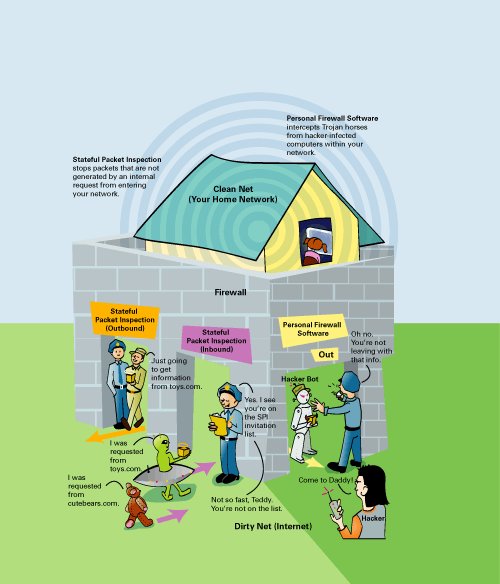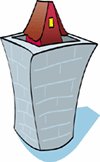Chapter 1. Tip 1: Use Firewalls
|
The term firewall is borrowed from the construction industry, where a hardened fire-proof material, such as cinder block, is built between two sections of a building so that if one catches on fire, the other might not. A firewall in computer terms provides similar protection, by shielding one part of a network (say, your home network) from another part (say, the Internet) that may be "on fire." Now, the Internet is not exactly in flames, but it is a "dirty" network, meaning few rules and regulations apply, and those that do exist are often circumvented by some folks. You can view the Internet kind of like the Wild West of networks.  Firewalls are one of the most important lines of defense you need for your home network. You may ask yourself, "Why are firewalls so important? After all, I have been using the Internet for years with a dialup connection and never needed one before." The answer is simple. If you only have to go into a bad part of town occasionally, maybe you can just be careful. If you have to live in that part of town all the time, it is probably wise to lock the doors and carry some type of protection. With high-speed broadband service, your Internet connection is always on, meaning as long as your broadband modem is connected to your home network and it is powered on, your home network and all the computers on it have a connection to the Internet. You are no longer just visiting the bad side of town; with broadband, you are now living there. Unchecked, hackers, bored or mischievous neighbors (or their kids), or just other people with too much time on their hands can try to access your home network through your broadband connection from anywhere in the world. Broadband also provides hackers with high-speed connections to do a lot more hacking. Once hacked, you cannot undo what you may lose, such as personal data, access to financial accounts, and so on. So, the only real option is to prevent yourself from being hacked in the first place. Firewalls provide a means to block unwanted visitors from gaining access to your home network, the computers on it, and the information those computers contain. |
EAN: 2147483647
Pages: 130
